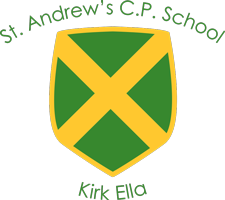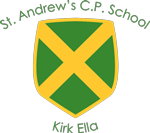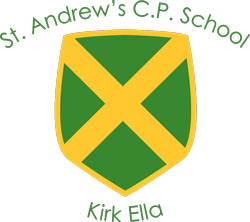At Kirk Ella St. Andrew’s, we believe that science is a subject that can inspire children to learn about how to make sense of the world around us and why things are the way that they are in a fun and practical way. We seek to create a life-long love for the subject that continues to develop beyond primary school and may contribute to a successful career path for our young investigators.
The science curriculum at our school enables children to develop a deep understanding of scientific knowledge that builds upon previously taught content where they will be immersed in rich vocabulary. We intend to encourage children to respect living organisms and the physical environment and be inquisitive learners. Developing investigative skills and being able to work scientifically is at the heart of our curriculum. Making predictions, experimenting, and drawing conclusions are key aspects of a child’s scientific journey. We intend our science curriculum to be as much about curious questioning as it is about knowledge. We also intend children to be able to work collaboratively with others and be integral members of a team when carrying out scientific enquiry.
Based upon the National Curriculum and the individual needs of our children, we have created a science progression map that sets out the objectives taught in each year group. Science is taught in blocks and these are often the key focus in providing inspiration for a half-term or term’s learning. We are proud of the wonderful opportunities that we provide for our children in the classroom, in the outdoors and on visits. First-hand, investigative experience is key to learning and we try to provide as many opportunities as possible to engage children in this way and encourage children to collaborate with others in a team. As the children get older and more experienced, we expect them to be able to investigate and use equipment more independently where less direct support is given in terms of ideas, equipment handling and solutions. In short, we allow children to safely make mistakes so that they develop more scientific wisdom.
Our lessons are planned so that all our children are able to access lessons. Where necessary and appropriate, teachers will differentiate to support the needs of individuals and provide opportunities that challenge our more able pupils.
We understand that children can have different starting points, and some are better at retaining knowledge than others. We often begin units with general discussion to ascertain prior knowledge to inform where we go next. Scientific enquiry is revisited regularly and there are posters that use familiar language on displays in every classroom. Outdoor and indoor posters, displays and activities are also located around the school that help feed the inquisitive nature of children and can be used as a focal point for teaching.
The impact of our science curriculum is measured in a variety of ways: questioning during lesson time, assessing children’s written work against the learning objective, listening to child-led discussion, interviewing pupils across the school about their learning, book scrutinies, and learning walks. We also use photos and videos of practical learning to help us measure the impact of our curriculum. More formal assessments can be used in a number of year groups where such tools have been developed (Y3, 5 and 6).
By the end of the science curriculum at Kirk Ella St. Andrew’s, we hope our children will:
- Have a growing understanding of the world and the way things happen.
- Have a wider vocabulary of scientific terms and articulate and reason using this language.
- Aspire to discover more about the scientific world, through reading, travel or use of the media.
- Consider undertaking a new area of scientific study for Mastermind.
- Have an understanding that making mistakes is the key to success.
- Develop their scientific enquiry skills and work collaboratively with others.
The Science Curriculum Overview



